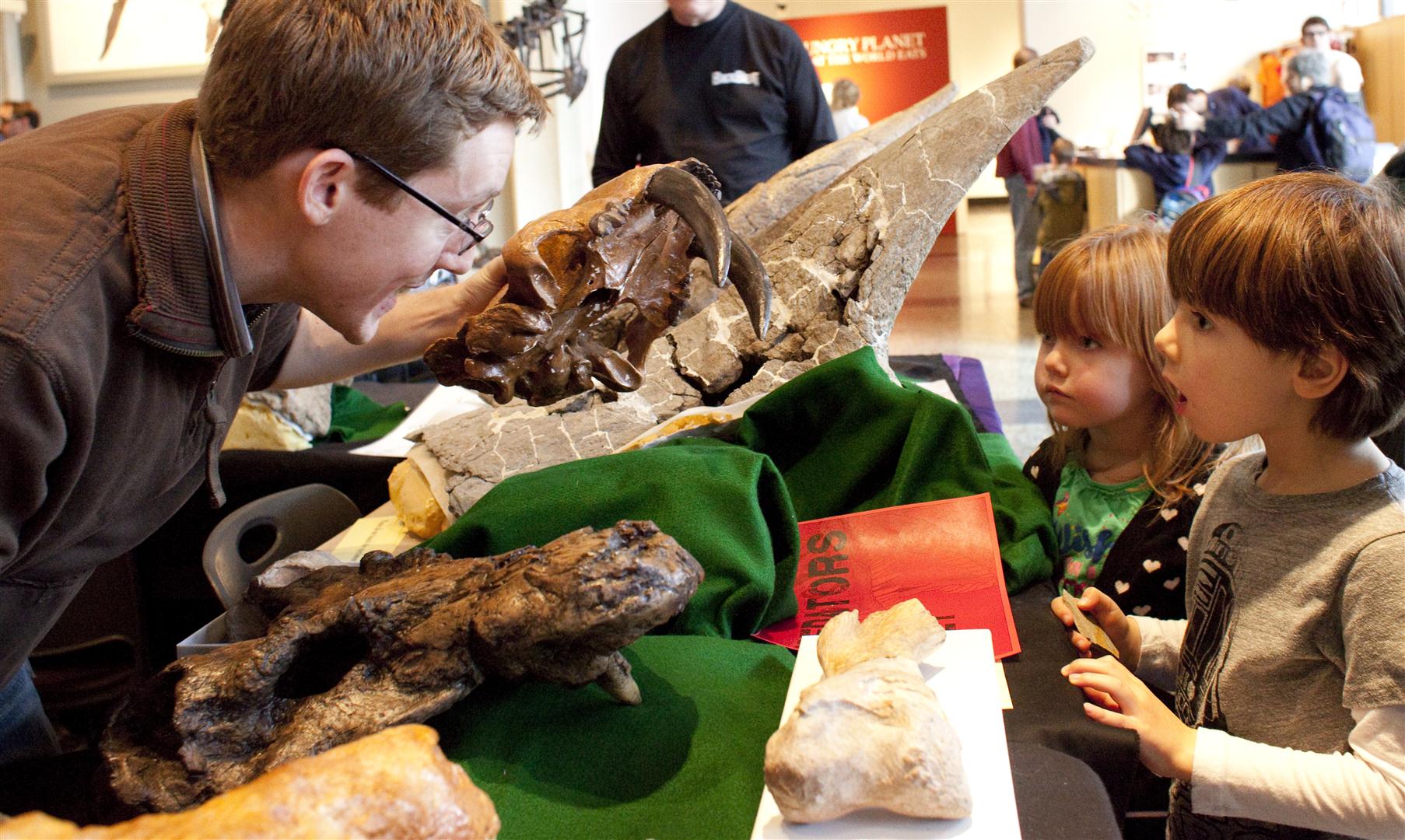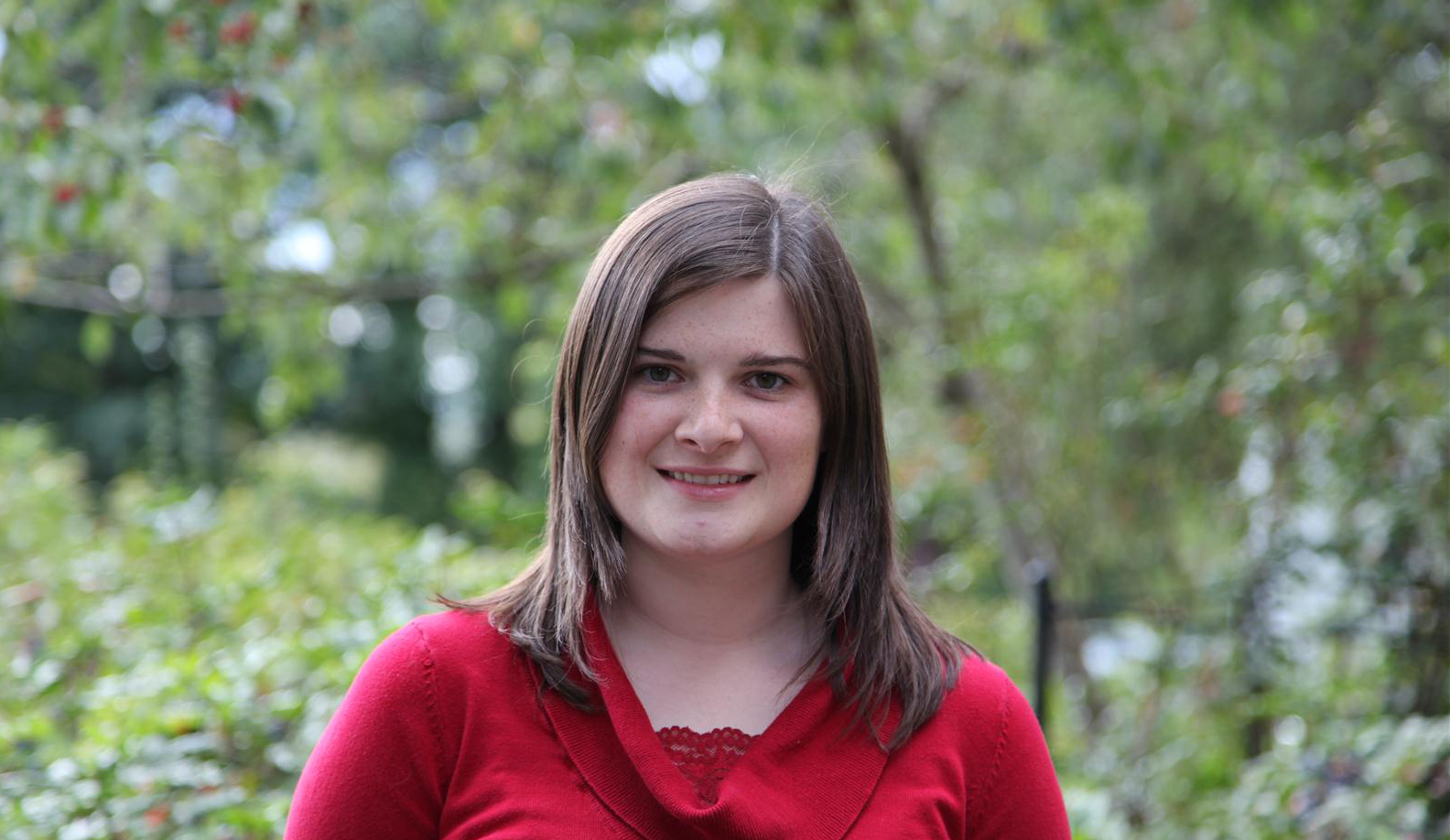By: Andrea Godinez
Do you consider yourself a scientist? Or see the ways that research affects your daily life? Sometimes, for those of us who are not working in a lab or the field, science can seem exclusive and disconnected from our lives.
That’s why I have devoted my career to telling stories of science and research in ways that are hopefully accessible to our audiences – including those who identify themselves as non-scientists. I often tell these stories through words or visual marketing pieces. However, it is easy to overlook the importance of connecting our visitors to first-hand experiences that engage them in the research happening at museums like the Burke every day.
This is one of the main reasons why I am looking forward to attending “The Joy of Discovery: Sharing Research with the Public” session at the upcoming Western Museums Association’s Annual Meeting. A session about designing a museum’s physical space to convey research to its visitors is very intriguing to me. The Burke Museum is working toward building a new museum facility, and at the heart of our effort is bringing research and the collections to the forefront of the visitor experience.
 UW graduate student Adam Huttenlocker shows fossils from the Burke Museum collections to young visitors at the museum’s annual Dino Day. Adam conducted fieldwork in Antarctica with our vertebrate paleontology team as part of his doctoral dissertation. Photo by Lora Shinn.
UW graduate student Adam Huttenlocker shows fossils from the Burke Museum collections to young visitors at the museum’s annual Dino Day. Adam conducted fieldwork in Antarctica with our vertebrate paleontology team as part of his doctoral dissertation. Photo by Lora Shinn.
At the Burke Museum, we have over 15 million objects in our collections. These collections are an essential part of the world’s research library, for anyone to “check out” and use to answer questions about the world and our place in it. One of the main goals we strive to accomplish through our communications strategies and the museum environment is to raise the public’s awareness of the importance of these collections and how they can be used. Specifically, how do we help convey the importance of research through museum collections? And how can we draw connections between this research and a visitor’s daily life so it is relevant to them? These are questions that we’re exploring at the Burke Museum, and I look forward to learning how others have addressed these questions at the WMA session.
In the past, I have attended museum conferences as a student. This year, I’m attending WMA’s annual meeting as a museum professional. I look forward to discussing best practices with others from a variety of jobs and backgrounds, and bringing these thoughts back to my work. Many of the session speakers are emerging museum professionals, and I highly recommend both students and those who are new to the field attendance the conference – because we’re talking and bringing innovative ideas to the table.
If museums continue to bring collections accessibility to the forefront of the visitor experience, then maybe we can create opportunities for our audiences to imagine themselves as a scientist. Or, provide the platform for visitors to engage with science and research in ways that show the relevance to everyone’s lives. Whichever way we engage museum audiences in research, I hope to see even more people inspired by science and recognize the role museums play in this practice.
 Andrea Godinez, M.A. Museology, is the Public Relations and Marketing Coordinator at the Burke Museum of Natural History and Culture in Seattle, Washington. She is a graduate of the University of Washington’s Museology Graduate Program and is interested in connecting diverse audiences to museums, evaluating the impact of museums on society (and vice versa), and creating engaging content through dynamic programming and storytelling.
Andrea Godinez, M.A. Museology, is the Public Relations and Marketing Coordinator at the Burke Museum of Natural History and Culture in Seattle, Washington. She is a graduate of the University of Washington’s Museology Graduate Program and is interested in connecting diverse audiences to museums, evaluating the impact of museums on society (and vice versa), and creating engaging content through dynamic programming and storytelling.








Comments
thank you.. I am Dr. P.Suresh Hyderabad, Andhra Pradesh, India, and my Post Doctoral Fellowship research area is on "museums as tools for promotion of tourism"
Add new comment